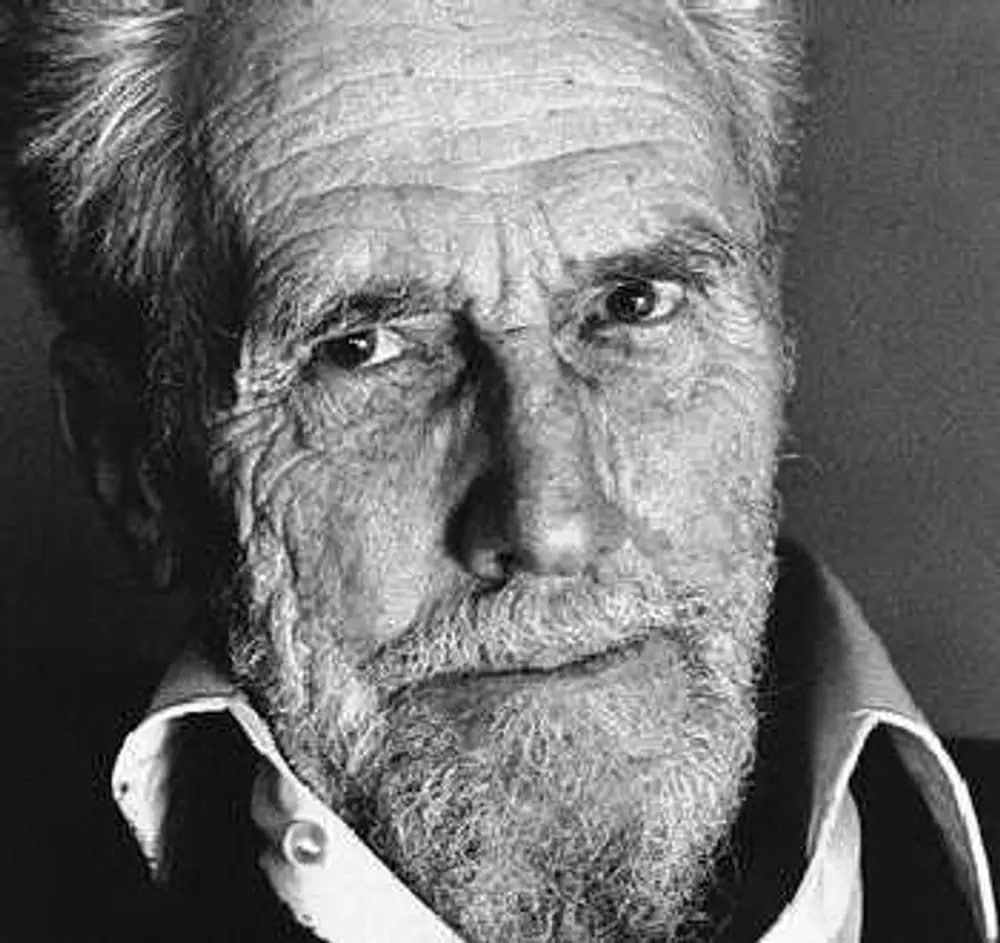Ezra Pound
Ezra Pound, a seminal figure in 20th-century modernist literature, is renowned for his significant contributions to poetry, marked by his commitment to clarity, precision, and the economy of language. His influence extends beyond his own writings, as he played a pivotal role in the modernist movement, shaping the works of notable literary figures such as T.S. Eliot, James Joyce, and Ernest Hemingway. His advocacy for Imagism, drawing inspiration from classical Chinese and Japanese poetry, emphasized direct expression and linguistic conciseness, setting a new direction in modern poetry.

“The Cantos,” Pound’s ambitious epic, represents a culmination of his literary experimentation, reflecting his deep engagement with history, culture, and language over nearly half a century. Despite his significant literary achievements, Pound’s career was overshadowed by controversy, particularly his support for Fascism during World War II, which led to his imprisonment.
Pound’s enduring legacy in the realm of modernist literature underscores his influence on subsequent generations of writers and poets, highlighting his role in challenging and redefining literary conventions. His work continues to be a subject of study and admiration for its innovative approach to poetic form and its impact on the evolution of modern literature.
For further insights into Ezra Pound’s life and literary contributions, resources provided by the Poetry Foundation and the Academy of American Poets offer comprehensive overviews.
QUESTIONS FOR DISCUSSION
- How does Imagism, as promoted by Ezra Pound, differ from previous poetic movements, and what impact did it have on modernist poetry?
- In what ways do Pound’s translations and adaptations of Chinese and Japanese poetry influence Western literary traditions, particularly within the context of Imagism?
- Discuss the significance of “The Cantos” in Pound’s career. How does this work reflect his artistic and philosophical evolution over the years?
- Analyze the impact of Pound’s political beliefs on his literary reputation, particularly his pro-Fascist stance during World War II. How should modern readers reconcile his political views with his literary contributions?
- Pound played a crucial role in shaping the careers of other modernist writers. How did his mentorship and criticism influence the trajectory of 20th-century literature?
- Consider the themes and stylistic features that characterize Pound’s poetry. How do they reflect the broader cultural and historical contexts of his time?
- Examine Pound’s approach to literary criticism. How did his essays and critical works contribute to the discourse on literature and influence his contemporaries and successors?
- Discuss the role of experimentation in Pound’s work. How did his pursuit of new literary forms and techniques influence the development of modernist poetry?
- Explore the concept of intertextuality in Pound’s poetry, especially how he incorporates references to historical, cultural, and literary texts. What does this intertextuality reveal about his literary philosophy?
- Pound’s influence extends beyond poetry to other genres, including drama and prose. How do his contributions in these areas complement or contrast with his poetic works?
© 2024, wcadmin. All rights reserved, Writers Critique, LLC Unless otherwise noted, all posts remain copyright of their respective authors.




